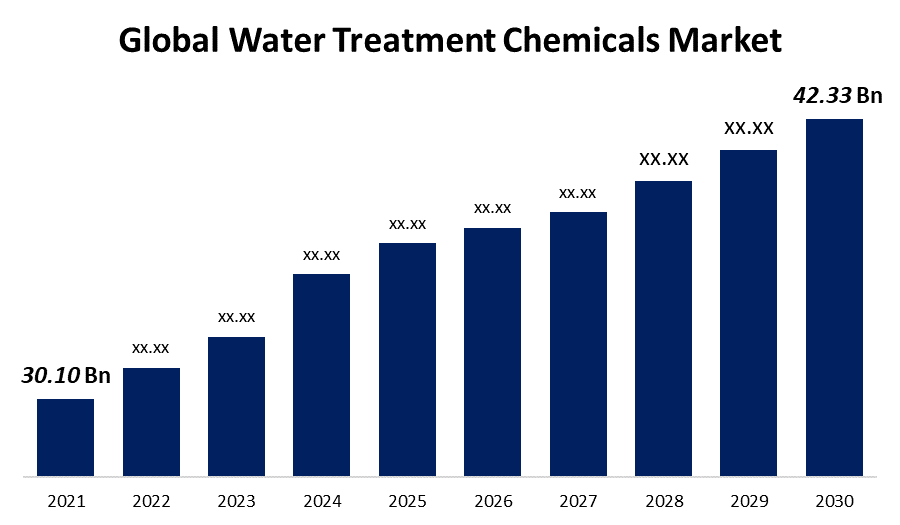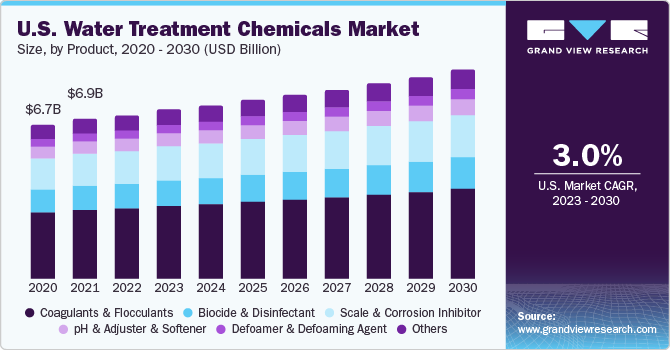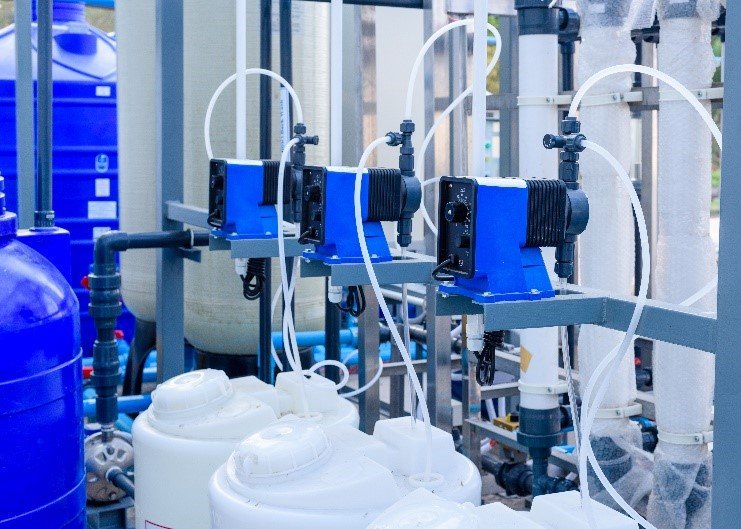When Picking Water Treatment Chemicals for Optimum Performance, what to Look for.
When choosing water treatment chemicals, it's vital to understand your specific needs and the pollutants existing in your water. You'll wish to examine the efficacy of prospective chemicals, guaranteeing they function well with your existing systems. Don't ignore security requirements and regulative conformity, as they can substantially influence your procedures. But just how do you stabilize these variables with cost-effectiveness and distributor integrity? Let's explore these considerations better.
Comprehending Your Water Treatment Needs
When you're reviewing your water treatment requires, it's necessary to recognize the details issues affecting your water supply. Begin by examining your water for impurities like bacteria, heavy steels, and chemicals.
Consider your house's water use and any type of details wellness worries your family may have. By recognizing these factors, you can ensure that you choose the right chemicals and therapy methods to effectively address your distinct demands, leading to clean and safe water for your home.

Assessing Chemical Efficacy
To assure the chemicals you pick are reliable, you need to examine their performance against your particular water therapy goals. Look for independent examination results or accreditations that demonstrate the chemical's effectiveness in real-world applications.
Following, think about the chemical's rate of activity and the moment it requires to achieve preferred results. water treatment chemicals kingwood texas. Evaluating the chemical in a regulated setting, when possible, can also help you assess its performance
Don't fail to remember to analyze any possible side effects or environmental influences that could develop from using the chemicals. By completely examining these factors, you can make enlightened options that align with your water treatment goals, making certain ideal performance and safety and security for your system.
Making Sure Compatibility With Existing Solution
When picking water treatment chemicals, you require to analyze just how well they'll work with your existing systems. It's necessary to evaluate possible chemical communications to stay clear of any type of unfavorable impacts. By making certain compatibility, you can improve system performance and keep water top quality efficiently.
System Compatibility Assessment
Securing compatibility with existing systems is important for effective water therapy, as incorrectly selected chemicals can bring about equipment damages and reduced effectiveness - water treatment chemicals kingwood texas. Start by evaluating your system's materials, such as pumps, pipelines, and storage tanks, to identify any prospective interactions with the chemicals you're thinking about. Inspect for any type of maker recommendations to make sure you're not going against service warranties or standards. Additionally, review the pH degrees and temperature level limits of your system, as these aspects can affect chemical efficiency. It's likewise handy to speak with your chemical vendor for suggestions on compatibility. By taking these steps, you'll help guarantee that the chemicals you pick will certainly function harmoniously with your existing setup, optimizing efficiency and safeguarding your investment.
Chemical Communication Evaluation
Given that understanding chemical interactions is essential for keeping system integrity, it's important to analyze exactly how the chemicals you plan to make use of will interact with those currently present in your water therapy system. Begin by assessing the chemical make-up of your existing treatments. Seek prospective responses that could cause undesirable by-products or reduce effectiveness. Conduct compatibility tests to assess just how brand-new chemicals will certainly act in combination with the present ones. Take notice of elements like pH levels, temperature level, and focus, as these can greatly impact interactions. Constantly seek advice from safety data sheets and involve with chemical distributors for understandings on compatibility. By taking these steps, you'll guarantee peak efficiency and extend the life expectancy of your water therapy system.

Assessing Security and Handling Needs
When selecting water treatment chemicals, you need to focus on safety and security and handling demands. Make specific you recognize the governing compliance standards, make use of the right personal protective devices, and follow correct storage and disposal standards. This assures not only your safety but likewise the setting's wellness.
Governing Conformity Criteria
Comprehending regulative compliance standards is essential for any person entailed in water treatment, as these guidelines determine the security and handling demands for chemicals used in the procedure. Conformity guarantees that the chemicals you choose not just satisfy safety needs however also minimize ecological effect. By focusing on conformity, you protect yourself, your group, and the setting while maintaining the performance of your water therapy operations.
Individual Protective Tools
Assuring safety and security in water therapy procedures exceeds simply adhering to governing conformity; it additionally includes selecting the appropriate personal protective tools (PPE) You need to assess the certain chemicals you'll be dealing with and select PPE that protects versus their hazards. This might include handwear covers, goggles, face guards, and respirators, depending upon the substances entailed. Always examine the Product Safety and security Data Sheets (MSDS) for each and every chemical to comprehend the essential PPE requirements. When dealing with toxic or destructive chemicals, don't take shortcuts-- purchase premium tools that fits well and is comfy to wear. On a regular basis inspect your PPE for deterioration, and change it as needed to ensure optimal defense during your water therapy operations.

Storage and Disposal Guidelines
Correct storage and disposal of water treatment chemicals is essential for preserving safety and security and conformity. Always shop chemicals in their original containers, firmly secured, and in a cool, dry location away from direct sunshine. Confirm that you label all containers clearly to prevent complication.
When handling chemicals, make use of suitable personal safety tools, like gloves and goggles. Recognize any kind of particular storage space guidelines or temperature level needs.
Never ever put chemicals down the drainpipe or blend different compounds, as this can create dangerous reactions. Instead, use designated disposal facilities or waste collection services.
Reviewing Regulatory Conformity Standards
While examining water treatment chemicals, you need to be knowledgeable about the regulative compliance requirements that control their use. These requirements assure that the chemicals you pick meet security, health, and ecological demands. Familiarize yourself with local, state, and government laws, such as the Environmental Security Company (EPA) guidelines in the USA.
You must likewise check for any industry-specific check out this site requirements that may relate to your operations, like those from the American Water Functions Organization (AWWA) or the National Cleanliness Foundation (NSF)
It's essential to validate that the chemicals you pick are accepted for the designated application, especially if they'll affect alcohol consumption water top quality. Non-compliance can cause major lawful consequences and negatively impact public wellness.
Thinking About Cost-effectiveness and Spending Plan Restrictions
When you're choosing water therapy chemicals, it's important to weigh cost-effectiveness together with your spending plan constraints. Beginning by evaluating the general costs, including not just the acquisition rate however additionally delivery, taking care of, and disposal charges. Evaluate just how these chemicals will affect your functional expenses gradually.
Consider the effectiveness of each chemical; some might have a greater upfront price but provide far better efficiency and minimized long-term expenses. Try to find items that require lower dosages or much less constant application, as these can conserve you money in the long run.

Do not neglect to consider potential savings from improved water quality and compliance with policies, which can avoid expensive fines. Engage with your team to identify which choices line up with your monetary goals while still meeting your treatment needs. Striking the appropriate equilibrium can bring about reliable remedies without damaging the bank.
Evaluating Provider Credibility and Support Services
Picking the appropriate distributor for your water therapy chemicals is important, as their credibility and support solutions can substantially impact your operations. Start by looking into prospective providers-- search for reviews and endorsements that highlight their integrity and high quality. A strong online reputation commonly indicates a commitment to client complete satisfaction and item effectiveness.
Following, assess the support services they offer. Do they provide technological aid, training, and punctual feedbacks to queries? A vendor that stands by their products and agrees to aid you repair issues can save you time and cash in the lengthy run.
Lastly, consider their experience in the sector. A well established vendor with a tested performance history is most likely to recognize your particular demands and provide customized solutions. By meticulously evaluating these variables, you'll find a companion that not only meets your chemical requires yet also sustains your total operational goals.
Regularly Asked Questions
Exactly how Do I Establish the Right Dosage for Chemicals?
To figure out the appropriate dosage for chemicals, you ought to assess water quality, comply with supplier standards, and carry out routine screening. Adjust your dosage based on results, guaranteeing you maintain suitable therapy effectiveness and water security.
Can Water Therapy Chemicals Influence My Water Taste or Odor?
Yes, water treatment chemicals can impact your water's taste and odor. If you observe any kind of changes, it is critical to evaluate the chemicals used and adjust dosages or switch to options for much better outcomes.
What Are the Common Indications of Chemical Incompatibility?
You'll observe indications of chemical conflict with unforeseen color modifications, sediment formation, or unusual smells. It's essential to reassess your chemical selections to ensure effective and safe water therapy. if you see these problems.
Exactly how Typically Should I Evaluate Water After Chemical Treatment?
You need to examine your water from this source consistently after chemical therapy, ideally within 24 hours, after that once a week for the very first month. After that, month-to-month screening assists assure continuous safety and security and effectiveness of your water therapy system.
What Environmental Influences Should I Think About With Chemical Use?
When using chemicals, consider their results on regional communities, water top quality, and air contamination. water treatment chemicals kingwood texas. You need to likewise assess possible overflow and the long-term sustainability of your water therapy practices to decrease environmental injury
Final thought
In summary, choosing the appropriate water treatment chemicals is vital for peak efficiency. Take the time to pick carefully for the finest outcomes in your water therapy initiatives.
When selecting water treatment chemicals, it's necessary to recognize your specific needs and the pollutants existing in your water supply.Because recognizing chemical communications is essential for preserving system honesty, it's essential to evaluate exactly how the chemicals you plan to make use of will engage with those currently present in your water page treatment system.When choosing water treatment chemicals, you need to prioritize security and handling demands.Recognizing governing conformity criteria is essential for any person entailed in water therapy, as these standards determine the security and handling demands for chemicals utilized in the process. Can Water Treatment Chemicals Influence My Water Preference or Odor?